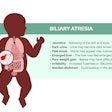Would a no-deal Brexit be a good deal for nuclear medicine in the U.K.? Definitely not, according to views expressed in a 31 July report in the Conversation, a not-for-profit media outlet that uses content sourced from academics and researchers.
Newly installed Prime Minister Boris Johnson has said the U.K. will leave the European Union (EU) by 31 October, even if there is no formal exit strategy. Such a dearth of detail is bound to cause serious issues with healthcare and medical supply chains, given the British Nuclear Medicine Society's estimate that 60% of the radiopharmaceuticals consumed in the U.K. come from the EU to treat as many as 600,000 patients per year.
Author ManMohan Sodhi, PhD, a professor of operations and supply chain management at City, University of London, noted that the situation could be particularly onerous for nuclear medicine, which relies heavily on radioisotopes that have short half-lives and can decay and become useless within a few days.
The U.K. government has asked nuclear medicine to expedite shipments by air, he added, but those deliveries would greatly increase costs.
One solution might be for the National Health Service (NHS) to develop alternative sources for radiopharmaceuticals, but such efforts take time and likely would also be expensive.



















